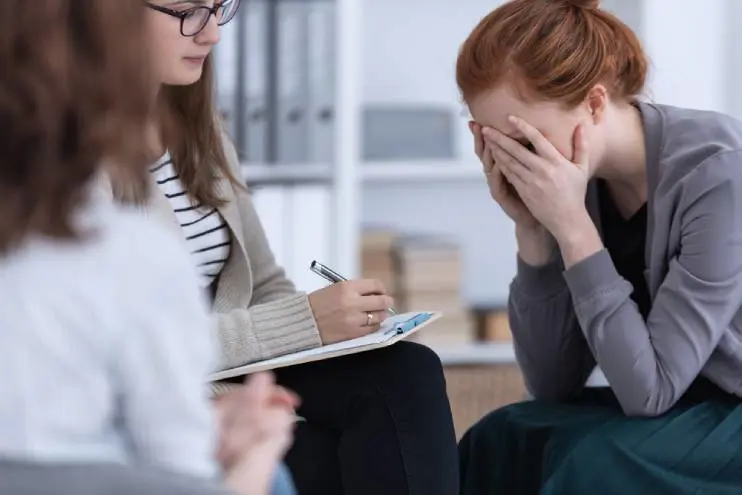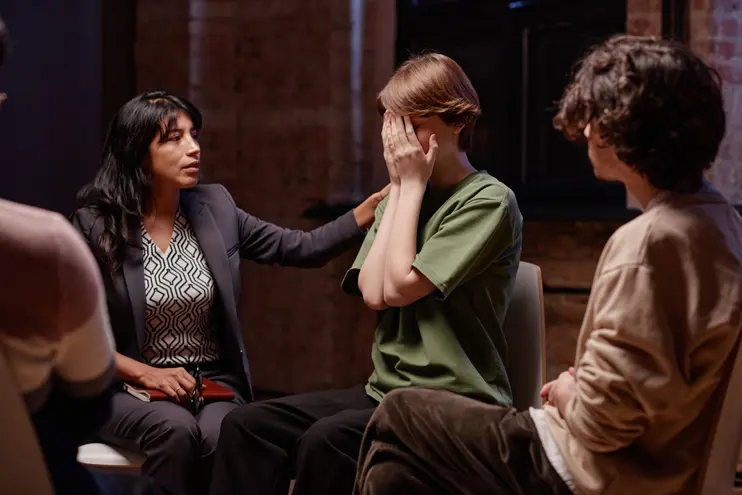In the realm of mental health care, group therapy has emerged as a transformative and highly effective treatment option for individuals facing a variety of psychological challenges. This collaborative therapeutic approach, which involves a group of individuals working together under the guidance of a trained therapist, has proven to be particularly beneficial in fostering a sense of connection and support. At Ahmedabad Psychiatry Clinic, located in Ahmedabad, India, Dr. Gopal Bhatia specializes in group therapy as a key component of his psychiatric practice, helping patients connect with one another and improve their mental well-being.
What is Group Therapy?
Group therapy is a form of psychotherapy that involves a therapist guiding a group of individuals facing similar mental health struggles. Unlike individual therapy, which focuses on one-on-one interaction between the therapist and patient, group therapy creates an environment where patients can share their experiences, emotions, and coping strategies. This shared experience often leads to a greater sense of support, encouragement, and healing.
At Ahmedabad Psychiatry Clinic, Dr. Gopal Bhatia employs group therapy to address a wide range of mental health conditions, including anxiety, depression, trauma, and addiction. By focusing on the power of connection, Dr. Bhatia helps his patients develop important interpersonal skills, gain new perspectives, and find emotional support from others going through similar struggles.
The Benefits of Group Therapy in Psychiatry

Group therapy offers numerous benefits, many of which are not as easily attainable through individual therapy alone. For individuals in Ahmedabad, India, seeking mental health support at Ahmedabad Psychiatry Clinic, Dr. Gopal Bhatia provides a safe, structured space where patients can experience the following advantages:
1. Enhanced Social Support
One of the most profound benefits of group therapy is the sense of social support it provides. Individuals facing mental health challenges often feel isolated, believing that no one understands their struggles. In group therapy, patients are surrounded by others who are experiencing similar difficulties. This shared experience reduces feelings of loneliness and fosters a sense of belonging. Through open communication, patients begin to realize they are not alone in their journey, and this emotional support can play a crucial role in their healing process.
2. Learning from Others
In a group therapy setting, individuals are exposed to a variety of perspectives and coping strategies. Each group member brings their unique experiences to the table, and this diversity of thought can be incredibly enriching. Dr. Gopal Bhatia encourages group members to share their coping mechanisms, techniques for managing stress, and personal insights, allowing participants to learn new approaches to handle their mental health challenges. This exchange of ideas can lead to greater self-awareness and growth.
3. Building Interpersonal Skills
For many individuals, mental health struggles can manifest in difficulties with communication and relationship-building. Group therapy offers a safe space for individuals to practice and improve their interpersonal skills. By interacting with others in the group, patients can work through any social anxiety, improve their listening skills, and develop stronger, healthier relationships. These newfound skills can translate into better interactions outside of therapy, helping patients create more fulfilling social connections.
4. Gaining Confidence
Sharing personal experiences in a supportive group environment can boost self-esteem and confidence. As patients open up about their challenges and triumphs, they often receive positive reinforcement from others in the group. This validation can empower individuals to take further steps toward recovery, knowing they are supported by others who understand their journey. Dr. Gopal Bhatia creates a compassionate space where patients can express themselves freely, allowing them to build confidence and feel comfortable in their own skin.
5. Affordable and Accessible Treatment
Compared to one-on-one therapy, group therapy is often more affordable and accessible. By participating in a group session, individuals can benefit from expert care at a lower cost, making mental health treatment more available to a broader range of people. Ahmedabad Psychiatry Clinic, under the leadership of Dr. Gopal Bhatia, strives to make quality psychiatric care accessible to everyone, regardless of financial constraints. Group therapy is an effective way to reach more individuals while providing the same high standard of care.
The Role of Dr. Gopal Bhatia in Group Therapy
Dr. Gopal Bhatia, a seasoned psychiatrist with years of experience in mental health care, plays a pivotal role in making group therapy a success at Ahmedabad Psychiatry Clinic. His approach to group therapy is rooted in compassion, empathy, and a deep understanding of human psychology. Dr. Bhatia creates a safe, non-judgmental environment where patients feel comfortable sharing their experiences and exploring their emotions.
His expertise in group therapy enables him to guide the group process effectively, ensuring that every participant feels heard and supported. Dr. Bhatia recognizes that each individual’s journey is unique, and he tailors his approach to meet the specific needs of the group. Through his skilled facilitation, Dr. Bhatia helps individuals process their emotions, improve their mental health, and foster meaningful connections with others.
Conditions Treated with Group Therapy

Group therapy can be an effective treatment for a wide range of mental health conditions. At Ahmedabad Psychiatry Clinic, Dr. Gopal Bhatia uses group therapy to help individuals dealing with various psychiatric issues, including:
Depression and Anxiety
Individuals struggling with depression and anxiety often experience a sense of isolation and helplessness. Group therapy provides a safe environment where patients can express their feelings and receive support from others. Sharing experiences with fellow participants can help individuals feel less isolated and more empowered to cope with their symptoms.
Post-Traumatic Stress Disorder (PTSD)
PTSD is a challenging condition that can leave individuals feeling disconnected from others. Group therapy provides an opportunity for those affected by trauma to connect with others who have experienced similar events. This shared healing experience can help individuals rebuild trust in themselves and others, fostering a sense of community and support.
Addiction Recovery
Addiction is often accompanied by feelings of shame and guilt, which can isolate individuals from their loved ones. Group therapy for addiction recovery creates a space for participants to support each other, share their struggles, and celebrate their victories. Dr. Gopal Bhatia helps guide the group process, ensuring that each participant has the tools they need to overcome addiction and rebuild their lives.
Personality Disorders
Individuals with personality disorders often struggle with relationships and emotional regulation. Group therapy offers a unique opportunity for these individuals to work on their social and interpersonal skills in a safe, structured environment. By receiving feedback from both the therapist and group members, individuals can gain valuable insights into their behavior and learn healthier ways of interacting with others.
Conclusion
Group therapy is a powerful and effective therapeutic approach that offers numerous benefits for individuals facing mental health challenges. At Ahmedabad Psychiatry Clinic, under the expertise of Dr. Gopal Bhatia, patients can experience the transformative power of connection through group therapy. Whether addressing anxiety, depression, trauma, or addiction, group therapy provides a safe and supportive environment for individuals to share their struggles, learn from others, and begin their journey toward healing.


